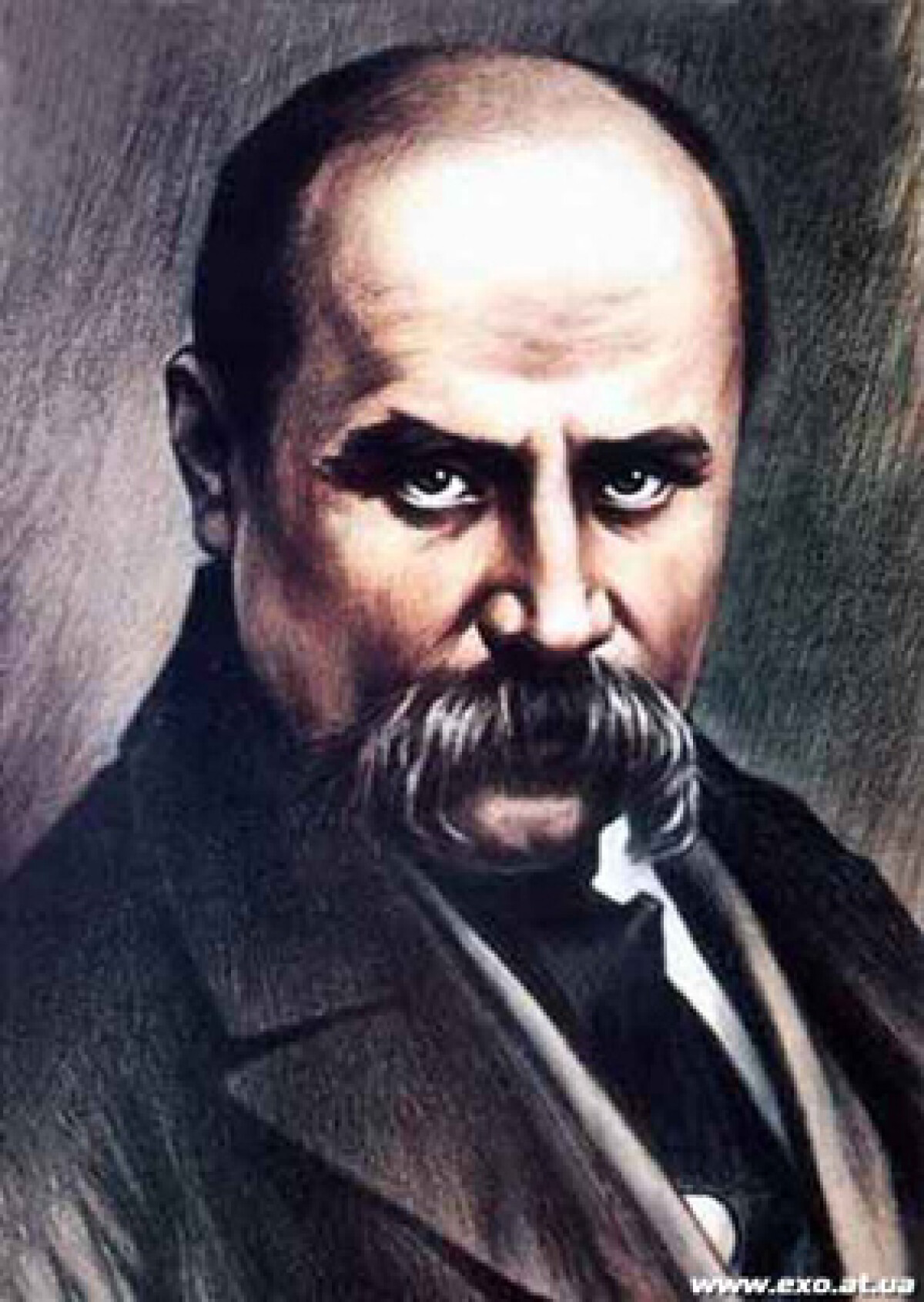Shevchenko Taras
Taras Shevchenko is a great Ukrainian poet. He is the founder of the modern Ukrainian literary language. Shevchenko was born in the family of a serf in the village of Moryntsy in 1814. Young Taras became an orphan very early. He was a shepherd, a labourer to a priest and, when he was fourteen, his master took him into the manor house as a boy-servant — “kozachok”.
In 1829 Shevchenko’s master moved to Vilno and then — to St Petersburg. He took his boy-servant with him, too. Still in his early childhood Shevchenko was very fond of drawing and his master decided to make a serf painter of him. For this purpose he sent Taras to study painting. The boy was so talented that several Russian artists decided to free him from slavery. Karl Brulov, the great Russian artist, painted a portrait of Vasiliy Zhukovsky and sold it for 2 500 roubles. With this money they bought out Shevchenko from his master. Later on the young painter continued his studies at the Petersburg Academy of Arts. Karl Brulov influenced Shevchenko greatly. Soon they became close friends. In 1838 Shevchenko wrote his first poems in Ukrainian.
In 1840 he published his first book of poems which he named “Kobzar”. His first poetical works are mainly examples of romanticism. The subject of many poems was unhappy love. He also wrote several poems about historical past of Ukraine. In these works he glorified the heroic struggle of the Ukrainian people against their oppressors and their fight for national liberation (the long poem “Gaidamaky”).
In 1843 Shevchenko returned to Ukraine. He travelled a lot about the country and learned to know the heavy life of the Ukrainian serfs. In 1846 Shevchenko joined a revolutionary organisation — Cyril and Mephodiy Society, which aimed to liberate the serfs. He wrote several revolutionary poems directed against the tsarist despotism (“Dream”, 1844, “The Caucasus”, 1845, and his famous “Testament”). In 1847 he was arrested and exiled as a soldier to Orsk fortress in Kazakhstan. Here, being a soldier, he wrote several novels in Russian. He also painted several of his best pictures. In 1857 Shevchenko returned from the exile to St Petersburg. Here he published several of his masterpieces in which he criticised the tsarist regime and demanded liberty for serfs. In St Petersburg he made close friends with well-known Russian writers — N. Chernyshevskyi, N. Dobrolubov, N. Nekrasov and others.
In 1859, when Shevchenko went to Ukraine, he was arrested and forced to return to St Petersburg — the tsarist government was afraid of the elderly poet. On the 10th of March, Shevchenko died. His death was a great loss for Ukrainian literature and liberation movement — A. Gertsen published a big article on Shevchenko’s death in his magazine “Kolokol” in London. Shevchenko is the favourite author of millions of Ukrainians, a real people’s poet. His works are translated into many languages.
Share:









